Polio Australia is a proud supporter of the following initiatives.
|
Robert Pennicott’s circumnavigation of Australia for Polio. Rob and fellow skipper, Mick Souter, the Pennicott Wilderness Journeys Operations Manager and a highly experienced sailor, are circumnavigating Australia in two 5.4m Naiad ribs (18ft dinghies). Rob and Mick departed Sydney on 2nd June 2011 to embark on a 12,000 nautical mile journey anticlockwise and expect to arrive back in Sydney towards the end of August. Click the photo of Rob at the left to access the video blog of his journey. |
|
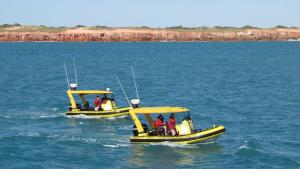 |
Rob hopes his journey will be the biggest donation platform Australia has ever seen – he wants to raise $39 million for Rotary’s End Polio Now effort. As Rob points out, although seemingly huge, the sum actually equates to an achievable $10 donation each from 3.9 million people – why not be one of those 3.9 million? Every cent raised from the Follow the Yellow Boat Road campaign goes towards outcomes. 92% of donations will be contributed to Rotary’s Polio Plus fund. [The remaining 8% will be contributed to the Pennicott Foundation for important conservation projects.] Rob says: “Just $10 will vaccinate 17 children against this crippling disease. Together we can End Polio Now.” |
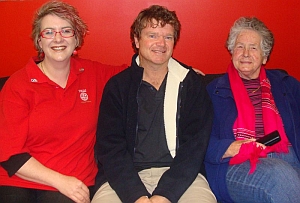 |
Click the play buttons or titles below to hear an interview with (pictured L to R) Caroline Farquhar (Rotary International), Rob Pennicott and Rebecca Round (Tasmanian polio survivor), broadcast by ABC Radio Hobart on 25 May 2011 as Rob was preparing to start his fund-raising journey around Australia. |
In Part #2 of the interview Rebecca describes her time in a Thomas splint. At the top of this page you can see a typical picture of a polio survivor in such a splint.
|
In 2011 the world has an unprecedented opportunity to protect future generations from the crippling and debilitating disease of polio. As the result of a global push to combat the disease, initiated by Australian Rotarians in 1979, we have seen a 99% reduction in cases of polio amongst children worldwide. In the next three years, we can see this number reduced to zero. This October the biggest ever gathering of Commonwealth leaders in history will take place in Perth, and we’re calling on Australia to finish what it started and lead an international commitment to eliminate this preventable disease in the next three years. The Global Poverty Project will embark on a national education and advocacy campaign in the lead up to CHOGM to raise public awareness about the unprecedented opportunity we have to see an end to polio. Starting from the 23rd of July, we will campaign for a hundred days before reaching an international climax on Friday 28 October, the opening day of CHOGM and coincidentally Jonas Salk’s birthday, with The End Concert being held in Fremantle. Click below to listen to an interview broadcast on Life Matters, ABC Radio National – 26 July 2011 with Chris Maher (Acting Director of Polio Eradication and Monitoring Research, World Health Organisation). Click below to listen to an interview broadcast on ABC Radio Australia – 25 August 2011 with Dr Ronald McCoy (Royal Australian College of General Practitioners) and Michael Sheldrick (Manager, End of Polio Campaign, Global Poverty Project). |
National Aids and Equipment Reform Alliance
The National Aids and Equipment Reform Alliance strongly supports the establishment of an insurance-based Long Term Disability Care and Support scheme for people with severe and profound disabilities. In the absence of a national aids and equipment policy framework there is currently an inefficient and often ineffective patchwork of over 100 separate equipment schemes operating in Australia with inconsistent patterns of funding and service delivery. Click the link above to read the National Aids and Equipment Reform Alliance Submission to the Productivity Commission Inquiry into a Long Term Disability Care and Support Scheme (10 September 2010).
National Disability Insurance Scheme
 | 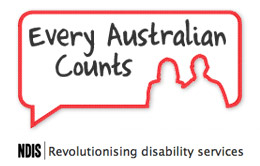  |  |
Every Australian Counts is the campaign for the introduction of a National Disability Insurance Scheme. The NDIS will revolutionise the way people with a disability, their families and carers are supported in this country.
The NDIS will be a new support system for people with a disability, their families and carers. It will transform the way services are funded and delivered, ensuring people are better supported and enabling them to have greater choice and control.
We need every Australian to stand up and say that people with a disability, their families and carers in this country deserve better and that it’s time for change. We need every Australian to say that people with a disability, their families and carers are Australians too, and that their hopes and dreams count. That they are part of our community, and that they count.
We need to show the government that there is widespread community support for change – and that the time for action has come.
 |
You can support the campaign by taking action to make every Australian count. Click on the picture at left to download a petition, or add yourself to the count online at the NDIS website. Your support is needed to make the NDIS a reality. Be part of the solution – take action now! |
 Disability Care and Support – Inquiry Report
Disability Care and Support – Inquiry Report
Current disability support arrangements are inequitable, underfunded, fragmented, and inefficient and give people with a disability little choice. They provide no certainty that people will be able to access appropriate supports when needed. While some governments have performed much better than others, and there are pockets of success, overall, no disability support arrangements in any jurisdiction are working well in all of the areas where change is required. The current arrangements cannot be called a genuine ‘system’ in which different elements work together to achieve desired outcomes.
The central message of this report is that a coherent and certain system for people with a disability is required — with much more and better-directed resourcing, a national approach, and a shift in decision-making to people with a disability and their carers. This overview explains what is wrong with the current arrangements and how to improve them. It shows how a new system would work for people with a disability and their families, and how it would provide benefits for the community as a whole.





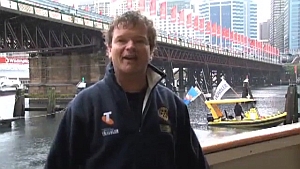
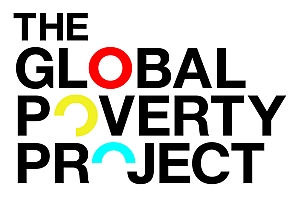
You must be logged in to post a comment.